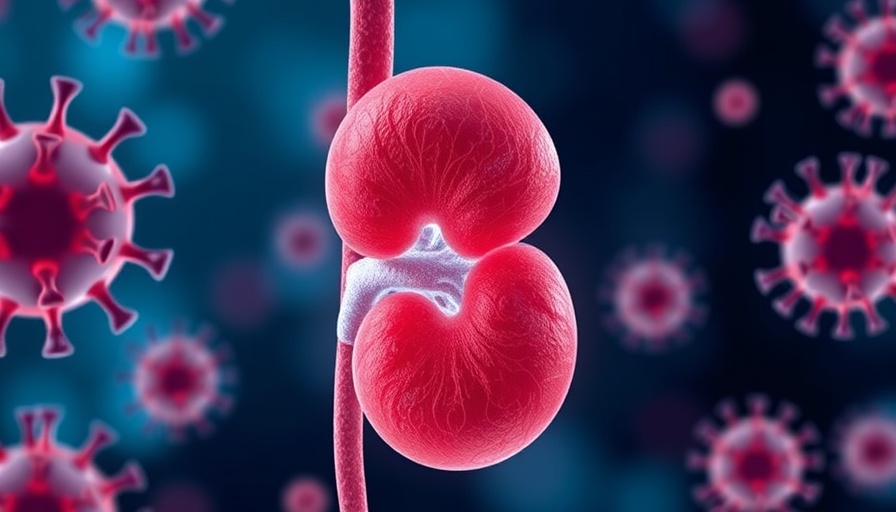
Understanding the Long-Term Effects of COVID-19 on Children's Health
Recent studies have revealed alarming evidence about the long-term health repercussions of COVID-19 infections in children, particularly concerning kidney health. A pivotal study published in the Journal of the American Medical Association (JAMA) emphasizes the potential for long-term kidney risks in children who have contracted COVID-19. While reports of severe outcomes from COVID-19 were largely centered on adult populations, this new research sheds light on an underappreciated vulnerability in the pediatric population.
The Link Between COVID-19 and Kidney Function
The study suggests that Italian researchers have identified that pediatric patients who are diagnosed with COVID-19 might face persistent impacts on their renal function. In clinical assessments, children recovering from the virus demonstrated alterations in kidney biomarkers compared to their healthy counterparts. These findings challenge previous assumptions that COVID-19 primarily poses short-term risks, raising the need for ongoing surveillance of kidney health in affected children.
Implications of the Study
This revelation is especially pertinent given the scale of COVID-19 infections among children worldwide. With schools reopening and children resuming regular activities, understanding the potential chronic ramifications of COVID-19 becomes essential not only for healthcare providers but also for parents and caregivers. These insights influence discussions surrounding vaccination strategies and the importance of maintaining a vigilant approach to children's health post-infection.
Comparative Insights: Other Viruses
Historically, various viral infections have shown to have long-lasting impacts on children's health, particularly regarding renal function. For example, viruses like influenza and hepatitis have left lasting renal complications in some patients. Such parallels urge healthcare professionals to adopt a more holistic view of viral infections beyond their immediate effects.
What Parents Should Know
As the findings from the JAMA study circulate, it's vital for parents to remain informed. Children who had COVID-19, even with mild symptoms, should undergo routine check-ups that include kidney functionality assessments, particularly if they display symptoms such as hypertension or blood in urine, which can be early indicators of kidney distress.
Future Directions for Research
Research into the long-term effects of COVID-19 in children is still in its infancy. Future studies will need to confirm these findings concerning kidney health while exploring underlying mechanisms that link COVID-19 to renal impairment. Insights gleaned could dramatically influence pediatric healthcare protocols and preventative strategies for infectious diseases.
Conclusion: The Importance of Continued Awareness
As the world moves past the immediate crisis of the pandemic, understanding the long-term health implications of COVID-19 infections in children remains pivotal. Enhanced awareness not only empowers families to seek appropriate medical evaluation but also drives healthcare policy to support effective childhood health interventions in response to viral infections.
 Add Row
Add Row  Add
Add 




Write A Comment